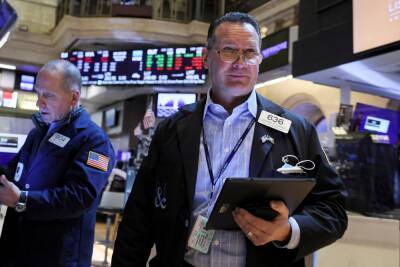Noisy activists aside, GSK investors backed Walmsley and her strategy
Emma Walmsley is at the starting line. That may sound a churlish assessment of years of graft to get GlaxoSmithKline’s consumer products division fit for demerger this summer, but it’s roughly accurate. The “step-change in growth”, as the chief executive puts it, for the core pharmaceutical division has always been the main event and that race has barely started.
More generously, one can say it was an achievement to avoid stumbles during the warmup stages. Elliott Advisors, the noisy activist in the wings, ultimately proved only a minor distraction. Other shareholders showed no appetite for regime change and backed Walmsley and her strategy. The fact that Unilever put £50bn on the table for the consumer division vindicated the thesis that the Sensodyne-to-Panadol unit is a store of riches (even if the stock market still has to endorse that valuation). GSK’s share price has improved by a third since its sickly level of £12 a year ago.
Yet £20-plus is really a minimum definition of medium-term success given that GSK was at £18 before the pandemic disrupted demand for the group’s bestselling shingles vaccine. It ought to be possible. Wednesday’s bang-in-line numbers for 2021 were accompanied by a forecast of 5%-7% growth in sales in pharmaceuticals this year and 12%-14% in operating profit. Walmsley’s five-year promise was compound rates of 5% and 10% respectively, so it’s on pace.
As ever, though, investors look ahead. Seven potential drugs, including biggies for a respiratory virus, hepatitis B and rheumatoid arthritis, receive critical read-outs from the labs this year, the first big test on Walmsley’s watch of the quality of the pipeline. Further out, she may need a big pharma deal to ignite the next round of innovation –
Read more on theguardian.com



















